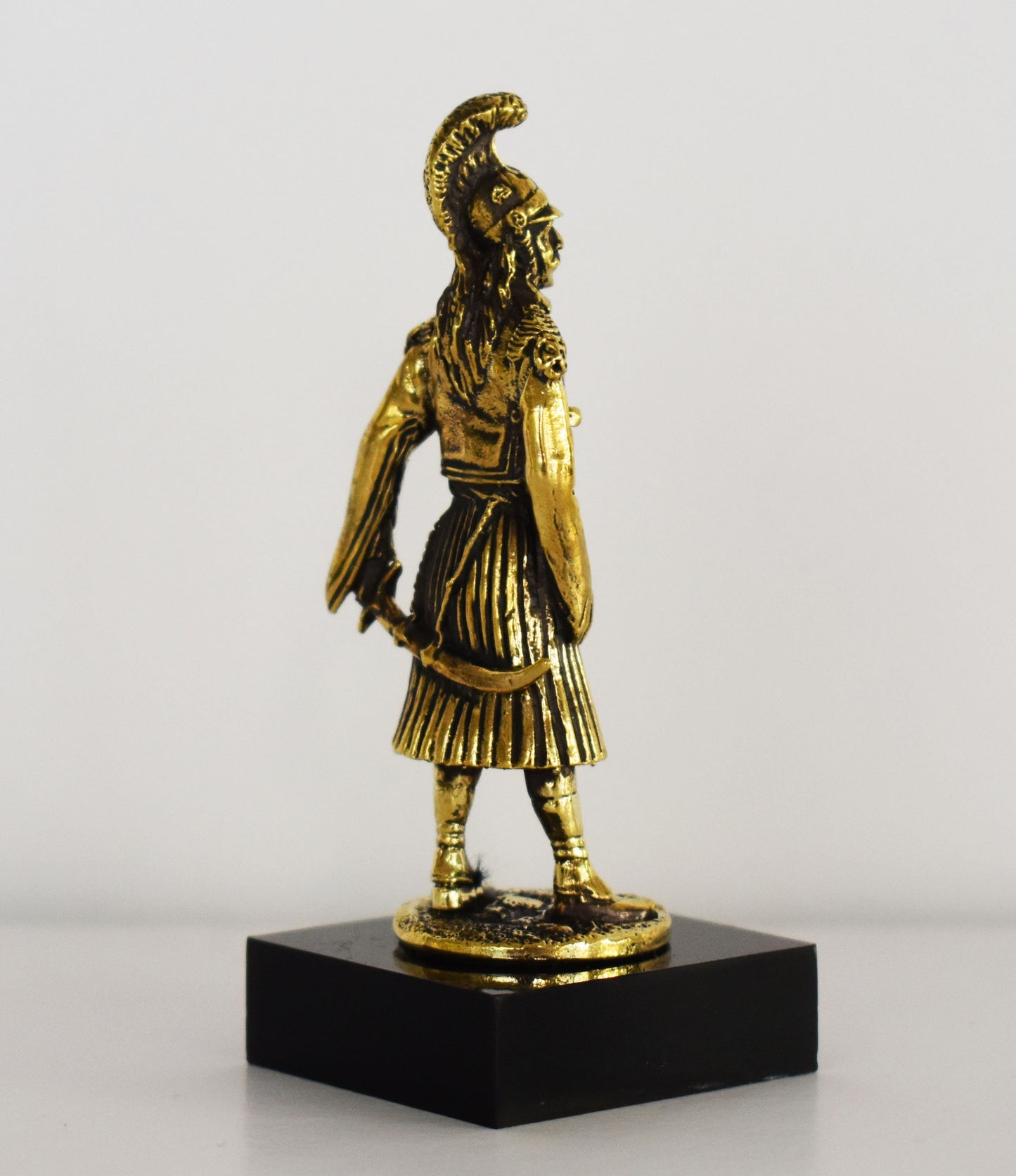Gallery Demeter
Kolokotronis - Greek General - Leader of the Greek War of Independence (1821–1829) - Miniature - Pure Bronze Statue
Kolokotronis - Greek General - Leader of the Greek War of Independence (1821–1829) - Miniature - Pure Bronze Statue
Regular price
€69,90 EUR
Regular price
Sale price
€69,90 EUR
Unit price
per
Tax included.
Shipping calculated at checkout.
Couldn't load pickup availability
Item Specifics
Condition: New, Made in Greece.
Material: Pure Bronze
Height: 7,5 cm - 3 inches
Width: 3 cm - 1,2 inches
Length: 3 cm - 1,2 inches
Weight: 55 g
Theodoros Kolokotronis (3 April 1770 - 16 February 1843) was a Greek general and the pre-eminent leader of the Greek War of Independence (1821–1829) against the Ottoman Empire. Kolokotronis's greatest success was the defeat of the Ottoman army under Mahmud Dramali Pasha at the Battle of Dervenakia in 1822. In 1825, he was appointed commander-in-chief of the Greek forces in the Peloponnese. Today, Kolokotronis ranks among the most prominent figures in Greece's War of Independence.
After the war, Kolokotronis became a supporter of Count Ioannis Kapodistrias and a proponent of alliance with Russia. When the count was assassinated on 8 October 1831, Kolokotronis created his own administration in support of Prince Otto of Bavaria as a King of Greece. However, later he opposed the Bavarian-dominated regency. On 7 June 1834, he was accused, with Dimitrios Plapoutas, for conspiracy against the regency, charged with treason and sentenced to death, though they were ultimately pardoned in 1835.
Theodoros Kolokotronis died in 1843 in Athens one day after his son Konstantinos's (Kollinos) wedding and after a feast at the Royal Palace, in presence of King Otto.
In the twilight of his life, Kolokotronis had learned to write in order to complete his memoirs, which constitute the second best known account of the events of the Greek Revolutionary War after the memoirs of Yannis Makriyannis, and have been translated several times in English and other languages. Kolokotronis's famed helmet, along with the rest of his arms and armor, may today be seen in the National Historical Museum of Greece in Athens. In addition to the Nafplio statue mentioned earlier, there is another to be seen in Athens, in the forecourt of the Old Parliament building on Stadiou Street, near Syntagma Square.









